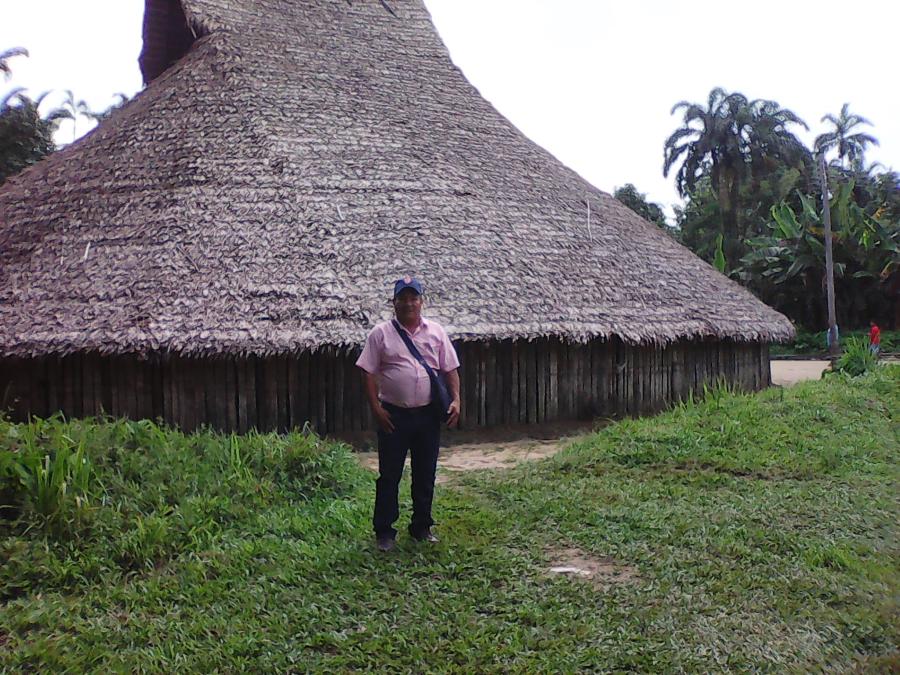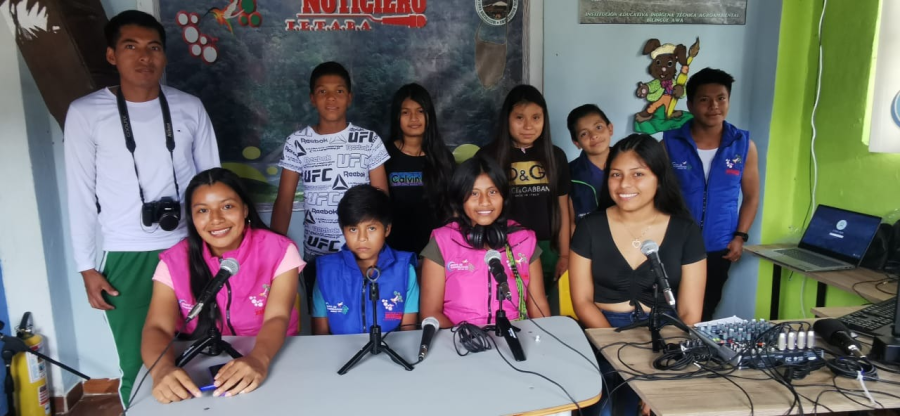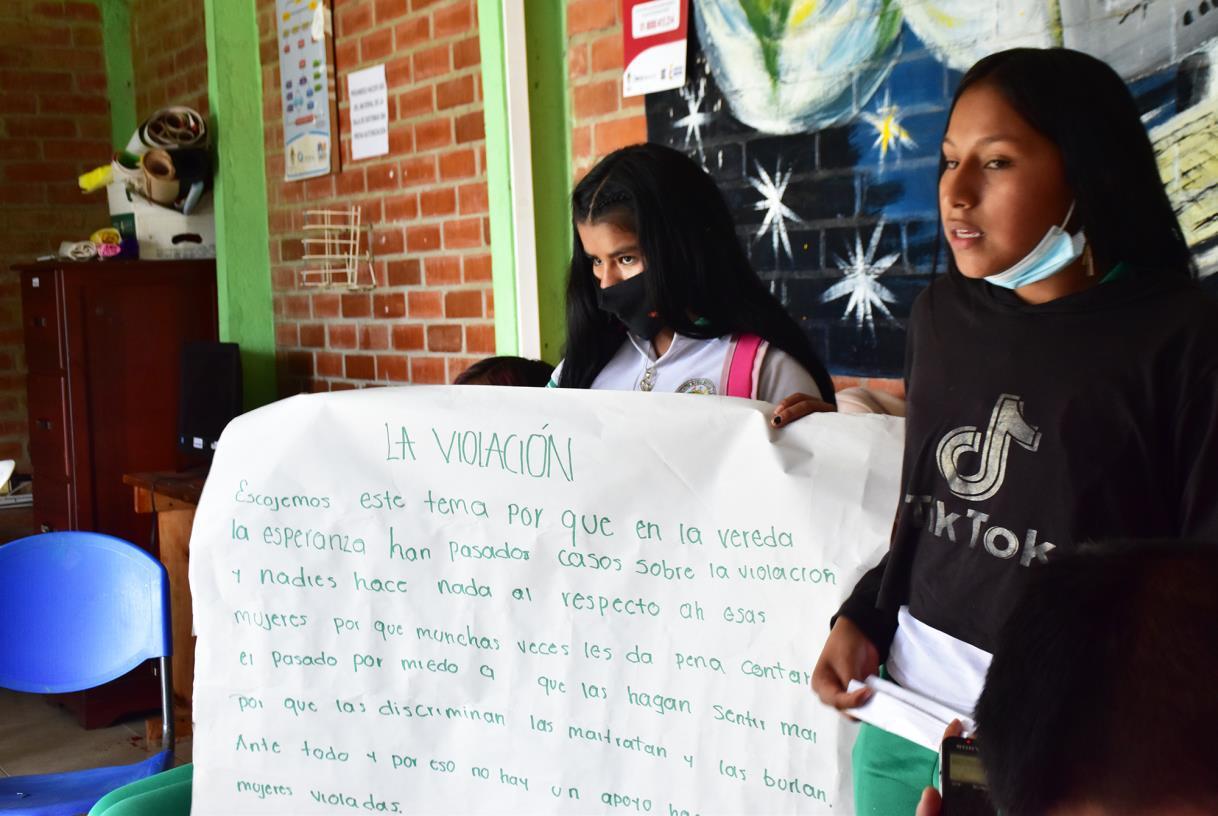
By Jesús Henry Campos (Nasa)
The Indigenous reservation and municipality of Jambaló is located in the northeast of the department of Cauca, Colombia, in the mountains at an altitude of 1,700-3,800 meters above sea level and an area of 254 square kilometers. According to the municipality's development plan, it is home to 18,699 inhabitants of 39 villages, 94.42% of whom are Nasa Indigenous Peoples. In addition to the Nasa, an Afro population of less than one percent is settled in the warmer, lower part of the Jambaló reservation, and approximately three percent are Misak Peoples settled in the colder, upper part of the reservation, for a total of 4,297 families throughout the reservation and municipality.
Within this context, the community radio station Voces de Nuestra Tierra (Voices of Our Land) was born, broadcasting its signal through the 107.4 FM dial. It has been serving the Indigenous communities of Jambaló and northern Cauca for 24 years. Its creation was under the permission of the Kwe kwe néjwesx (ancestral authorities) of the Indigenous territory of Jambaló, with agreements that allow them to exercise social, political, administrative, and cultural control within their territorial scope according to the customs, dynamics, and organization of their Indigenous Peoples.
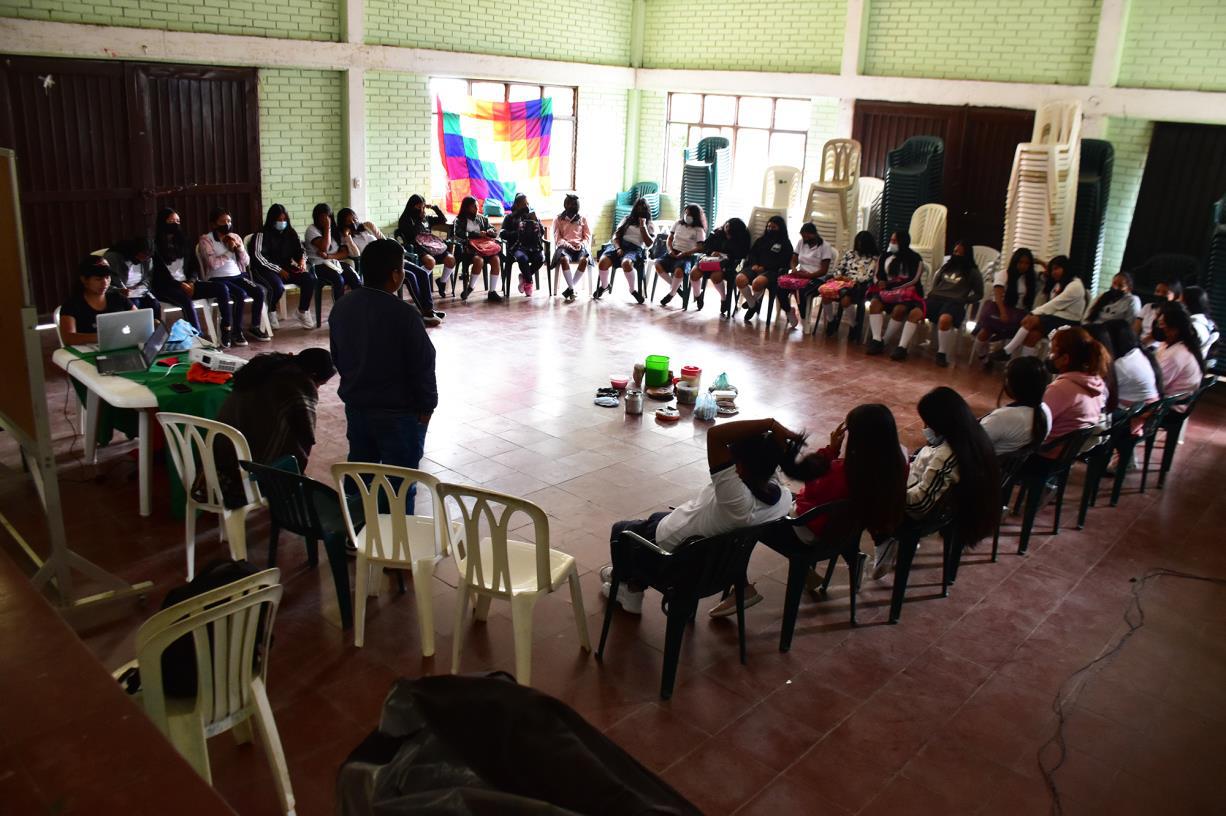
The seeds for the station were first sown in 1987 when the need was identified to compile and record the memories of the community assemblies. Under the auspices of the Plan de Vida-Proyecto Global (Global Project Community Plan), a committee was established to work with the community to study the possibility of implementing an alternative to handwritten pamphlets, which had been the primary mode of communication up until that time.
In 1994, per the mandate of the community assembly, Nasa Wala, of the Global Project, the first studies for the community radio station were initiated. It was approved by the Ministry of Communications through Resolution 2484 on May 8, 1997, which granted the concession license to the organized community of the Jambaló territory. The license remains in effect to the present.
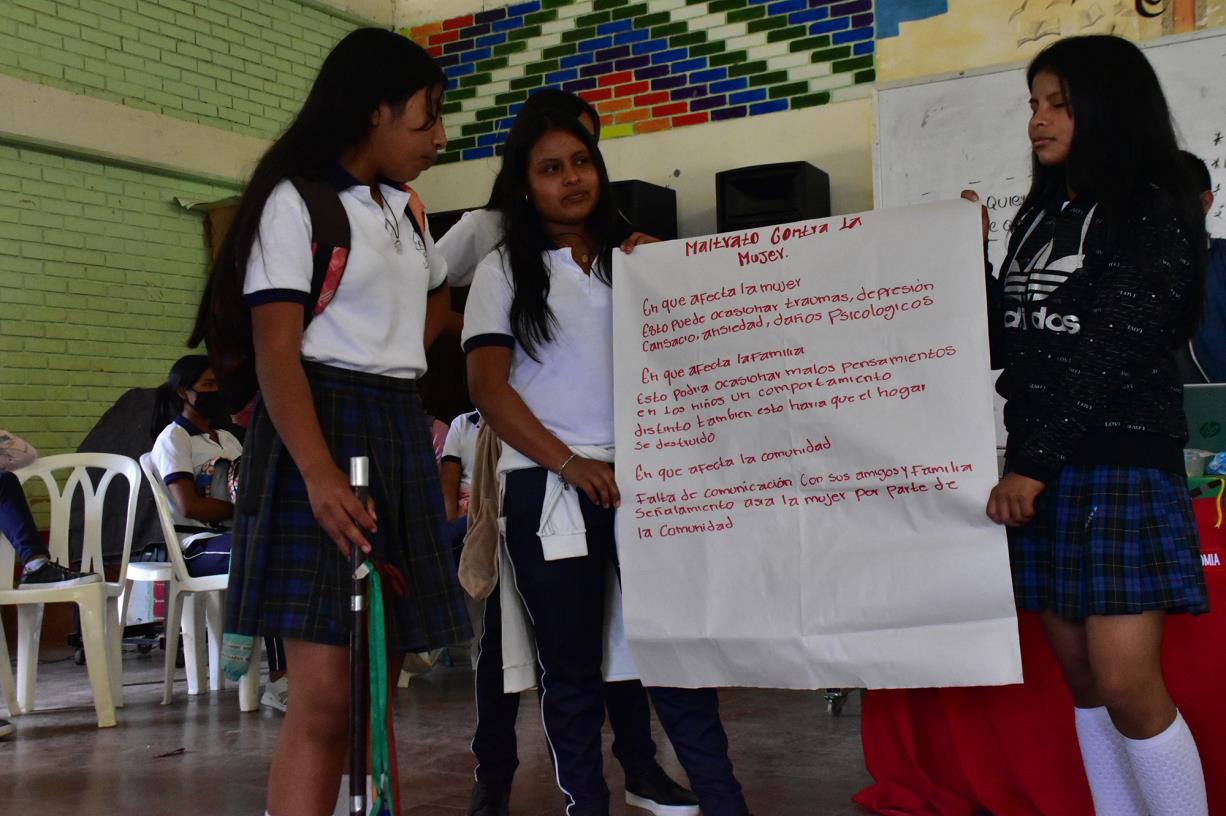
The Indigenous Council of Jambaló has a communications program, also called Voices of Our Land, which has a technical team and has trained community members in broadcasting for the last 10 years. Voices of Our Land is made up of seven members of the Nasa and Misak Peoples who work full time. Additionally, there is a team of volunteers composed of young people of the territory, who work during the weekends or whenever necessary. The station’s programming focuses on the issues of loss of cultural identity in young people, the strengthening of our mother tongues (Nasa Yuwe and Namtrik), cultural rituals, and community work.
The political organizational process of the Jambaló reservation is increasingly threatened by the institutional policies of the State; as time goes by, we are becoming more involved in State policies and the community process is weakening. To counteract this influence, each program of the Indigenous council has a space where the problems and solutions in education, economics, health, and justice are addressed. Radio programs are broadcast in the native languages, Nasa Yuwe and Namtrik, and in Spanish. Some communicators speak their native languages, which strengthens the work.
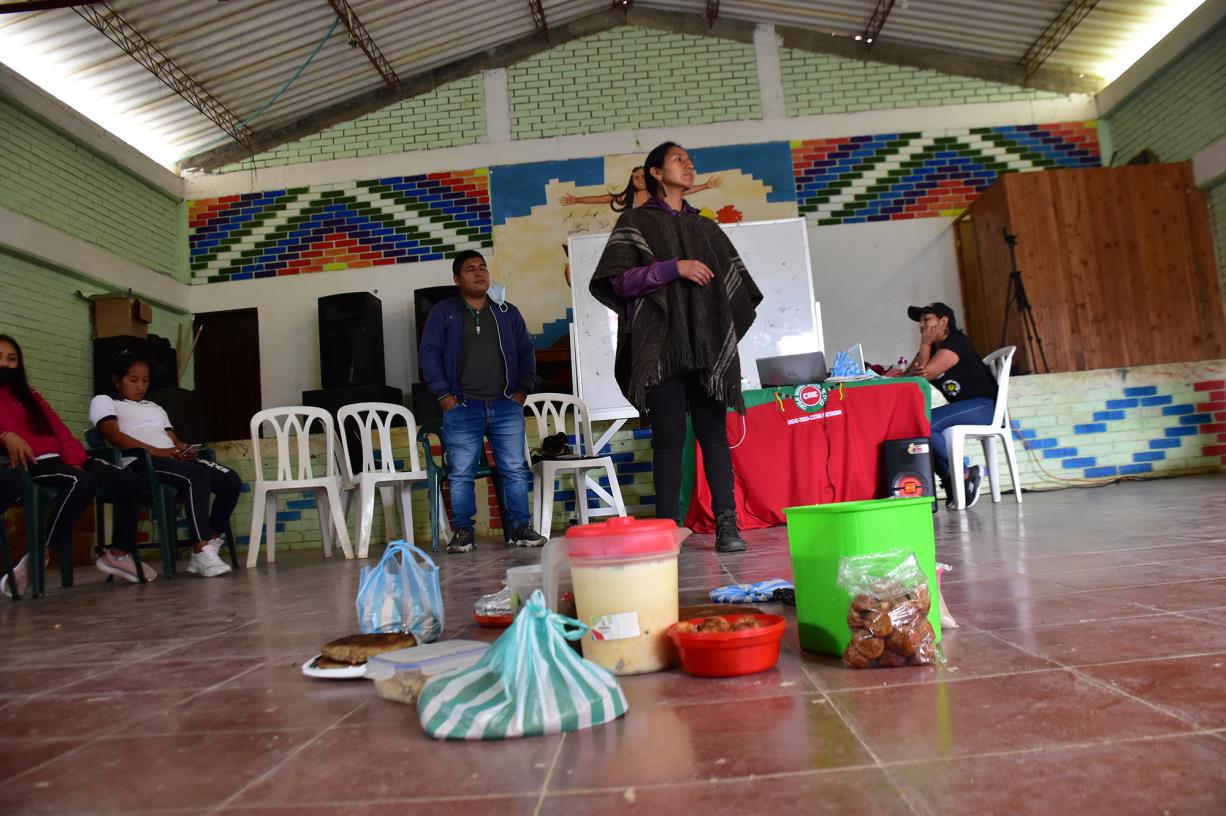
Within our organization, there are a number of key people who have contributed to strengthening each of the processes of the territory. We would like to recognize the authorities who formed the communication process in the creation of the radio station Voces de Nuestra Tierra, and specifically Juan Dagua Pechue (Nasa), who, thanks to his wisdom, served in the role of Ancestral Authority of the Territory.
The Cultural Survival grant helped us to reach the communities to discuss current affairs and helped cover expenses for food, transportation, and personnel for the development of Voices of Our Land. It allowed us to get closer to the young people of the territory and gave us time to address issues that we had not been able to reflect on before; for example, our understanding of the reality faced by women was deepened by what was related to us by the young people. This allowed us to produce analysis and opinion content representative of the community and helped us to strengthen the communications work while nurturing the programming of the radio station.
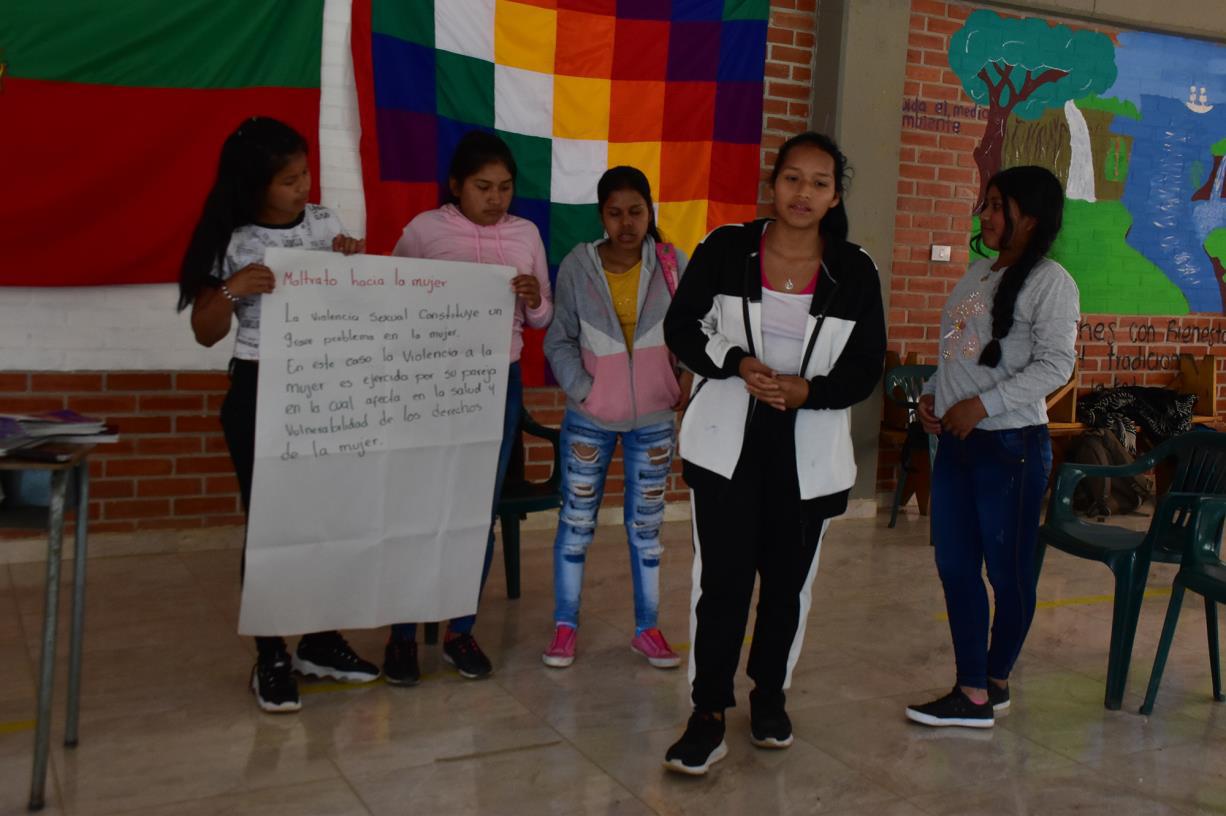
Life in the territory of northern Cauca is very difficult due to the presence of drug trafficking, armed groups, forced recruitment, murder and domestic violence against women, and lack of opportunities for young people. All this and more worries us because it threatens the life plans of the communities and Mother Earth. However, thanks to this support from Cultural Survival, we were able to get to know our communities better and listen to them—especially the women, who are very important for the family, the community, and the territory, and whose great work is often not recognized. We put ourselves in their shoes to feel their pain as they ask to be valued, respected, and included in the organizational process.
We still have many challenges as community communicators. We have to continue training ourselves to be up on what is happening, strengthen our critical thinking, get closer to our communities, and follow up on the issues raised by the women and young people of the territory. On behalf of the Kwe kwe néjwesx ancestral authorities of the territory of Jambaló-Cauca, we are infinitely grateful for their contribution to our organization and to our community radio station.
The communications program, Voices of Our Land, sends a thank you to Cultural Survival for trusting us and supporting initiatives from the Indigenous communities. We have always sought ways to manage projects to keep alive our memories as ancestral peoples. May this initiative be a door to continue disseminating and making our realities visible and also strengthening the communications work of other community radio stations around the world.
-- Jesús Henry Campos (Nasa) is Station Director at Radio Voces de Nuestra Tierra.
In 2021, Emisora Voces de Nuestra Tierra received a grant from Cultural Survival's Indigenous Community Media Fund. The Indigenous Community Media Fund provides opportunities for international Indigenous radio stations to strengthen their infrastructure and broadcast systems and creates training opportunities for journalism, broadcasting, audio editing, technical skills, and more for radio journalists from Indigenous communities around the world. In 2021, the Indigenous Community Media Fund supported 57 media projects in 23 countries, totaling $340,500.
